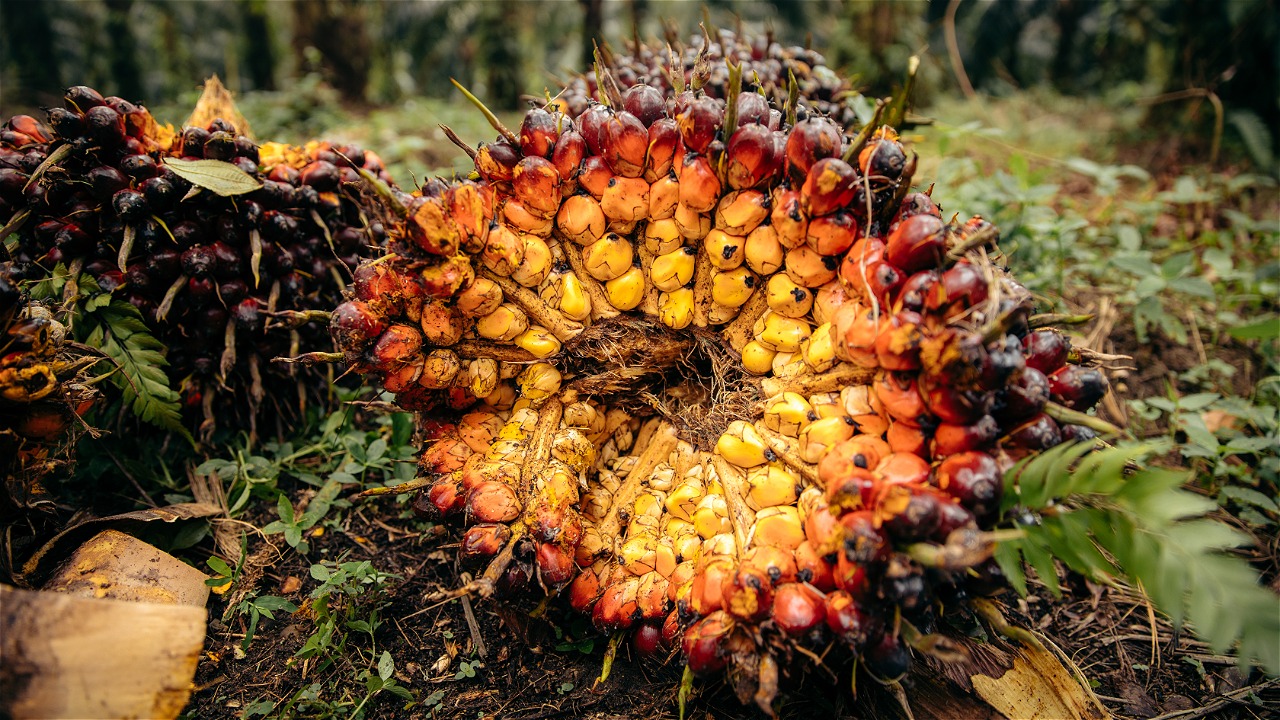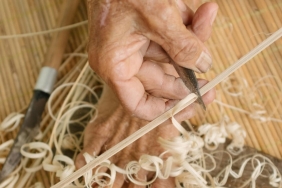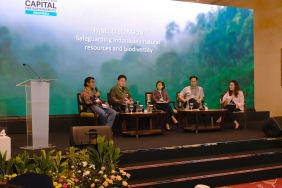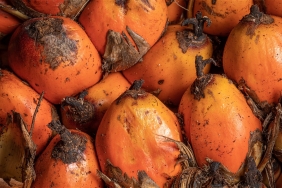SINTANG: SUSTAINABILITY WITH OIL PALM FARMERS
By: Siti Sadida Hafsyah
The development of oil palm continues to reach farmers, business actors from the community. Please note, there are two types of farmers for oil palm commodities. First, oil palm plasma farmers, which arise because companies involve local communities in the plantations they build and apply a profit-sharing pattern in them. Plasma smallholders emerged based on Law No. 98 of 2013, which requires oil palm plantation companies to facilitate the development of community plantations covering 20% of the business license granted. The second is independent oil palm smallholders, which generally do not involve any other parties apart from the farmers themselves.
WWF Indonesia is quite concerned about independent oil palm smallholders. While independent smallholders have limited knowledge of sustainable cultivation practices, management systems, and access to capital and markets, WWF Indonesia has made several efforts to improve them. One of them is in Sintang, West Kalimantan, since 2014. Starting with the formation of the Rimba Harapan Cooperative as an institutional forum for independent oil palm farmers.
CAPACITY STRENGTHENING
Reflecting on the previous WWF Indonesia-assisted Amanah Independent Palm Oil Farmers Association (Riau) that obtained the Roundtable of Sustainable Palm Oil (RSPO) certificate, Rimba Harapan Cooperative adopted the same in its plantation business. The three initial stages pursued are institutional governance, plantation governance, and business governance, in which the process involves the local government through the Regional Facilitator (Fasda) Sawit Lestari. By mapping oil palm farmers at the district level, this cooperative was then formed until institutional governance was designed, especially the Standard Operation Procedure (SOP) for its various activities.
Important points contained in the cooperative's membership SOP include the prohibition of oil palm plantation clearing in High Conservation Value (HCV) areas and land clearing by burning to meet sustainability prerequisites. Suratno Warsito, chairman of Rimba Harapan Cooperative even set aside land for wildlife habitat around Tebelian.
Furthermore, technical matters such as plantation management, are carried out by applying good agricultural practices. For example, intercropping has been proven to generate additional profits for farmers and protect biodiversity. Meanwhile, market security for the products of the oil palm plantation itself is carried out by visiting several factories in Sintang district. Not only that, the support of an internal control system (ICS) strengthens the concept of sustainability in the oil palm plantation business.
THREE PILLARS OF APPROACH: ECOLOGICAL, SOCIAL, AND ECONOMIC
Sustainable palm oil development will continue to be supported by three pillars that are interrelated with each other, namely ecology, social and economy. WWF Indonesia continues to provide assistance to independent oil palm farmers by emphasizing these three pillars. The social aspect is related to the economic aspect to see the potential conflicts of community land use so that it can further help reduce the rate of deforestation. Identification of independent oil palm smallholder plantations and mapping of future conditions can be assessed from the linkage of economic and ecological aspects. Meanwhile, ecological and social aspects are useful for increasing the capacity of farmers to protect important areas such as HCVs.
STRENGTHENING THE BUSINESS AND ECONOMIC GOVERNANCE OF INDEPENDENT SAWIT FARMERS
On January 12, 2017 in Pontianak, Putra Agung, Sustainable Palm Oil Manager of WWF-Indonesia explained that the three components that further become the target achievements are increasing the economic resilience and welfare of cooperative members, strengthening the support and contribution of local governments in sustainable oil palm plantation practices, and enlarging the impact of the program to the parties. The targeted villages are Merarai Satu village, Merarai Dua village, and Suka Jaya village in Sintang district by coordinating with several related parties. Technically, WWF-Indonesia explores the potential of alternative commodities that can be developed by farmers, accompanied by assistance. The capacity of farmers is again improved, especially in the governance of palm oil ICS institutions. This includes encouraging farmers to have a Plantation Business Registration Certificate for Cultivation (STD-B) to increase the bargaining value of independent oil palm farmers.
The series of activities carried out in 2017, among others, took place on April 6-9, 2017, where WWF Indonesia held a Training of Trainers (TOT) on organic farming and a comparative study of ICS in Sepandan village, Batang Lupar District, Kapuas Hulu Regency from the Sintang Independent Palm Oil ICS group, Banuaka Handicraft Center, Banuaka Rice Center, Barese Rubber Center, and Salted Fish Center. This was followed by problem formulation involving various parties. As well as a technical culture study of oil palm nurseries to the Palm Oil Research Center (PPKS) which was attended by 15 cooperative members on April 20, 2017. Still related to efforts to improve the economy of farmers, several meetings were held until it could be agreed that alternative commodities to be developed included crystal guava, laying hens, UB chickens, bananas, and rubber. The dimensions of activities that will continue to be carried out together with farmers include commodity development studies, business planning, and administrative management tools (financial and non-financial).





